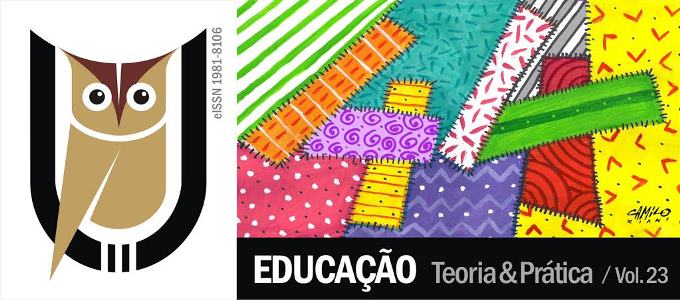Participation of parents and students in the scenario of democratic management
DOI:
https://doi.org/10.18675/1981-8106.vol23.n44.p112-129Keywords:
Democratic Management - Municipal Public School - Participation.Abstract
This article is an excerpt from a survey conducted in public education city of Maceió. We investigated whether participation in democratic management scenario, from the point of view of parents and students. The democratic management was implemented in this city in 1993, three years before the LDBEN No. 9394/96. The central concern was configured to identify whether parents and students could feel the participants democratization of school management. Hence, we studied: Libâneo (2004), Gadotti (2002), Paro (2001), Hora (2007) and Tavares (2003) to support the categories “democratic management” and “participation”. The methodological approach is qualitative basis, which used the technique of focus groups with students and parents. These demonstrated the few opportunities for participation offered, emphasizing the meetings in which their participation is limited to the condition of listeners. The subjects lament the inertia of families facing the problems the school faces. To structure effect, the text has two parts: 1) the historicity of democratic management, its principles and foundations on which the authors cover the subject comprehensively, and 2) an account of how was the research: the subjects and the main procedures adopted and the analysis presented.Downloads
Additional Files
Published
How to Cite
Issue
Section
License
Authors who publish in this journal agree to the following terms:
a) Authors assign copyright to the journal, with the work simultaneously licensed under the Creative Commons Attribution License that allows sharing of the work with acknowledgment of authorship and publication in this journal.
b) The policy adopted by the Editorial Committee is to assign copyright only after a period of 30 months from the date of publication of the article. After this time, authors interested in publishing the same text in another work must send a letter to the Editorial Committee requesting the release of the assignment of copyright and wait for a response.
c) This journal provides public access to all its content, since this allows greater visibility and reach of published articles and reviews. For more information on this approach, visit the Public Knowledge Project, a project that developed this system to improve the academic and public quality of research, by distributing OJS as well as other software to support the public access publication system to academic sources. The names and email addresses on this website will be used exclusively for the purposes of the journal and will not be available for other purposes. This journal provides open any other party  This work is licensed under a Creative Commons License
This work is licensed under a Creative Commons License











